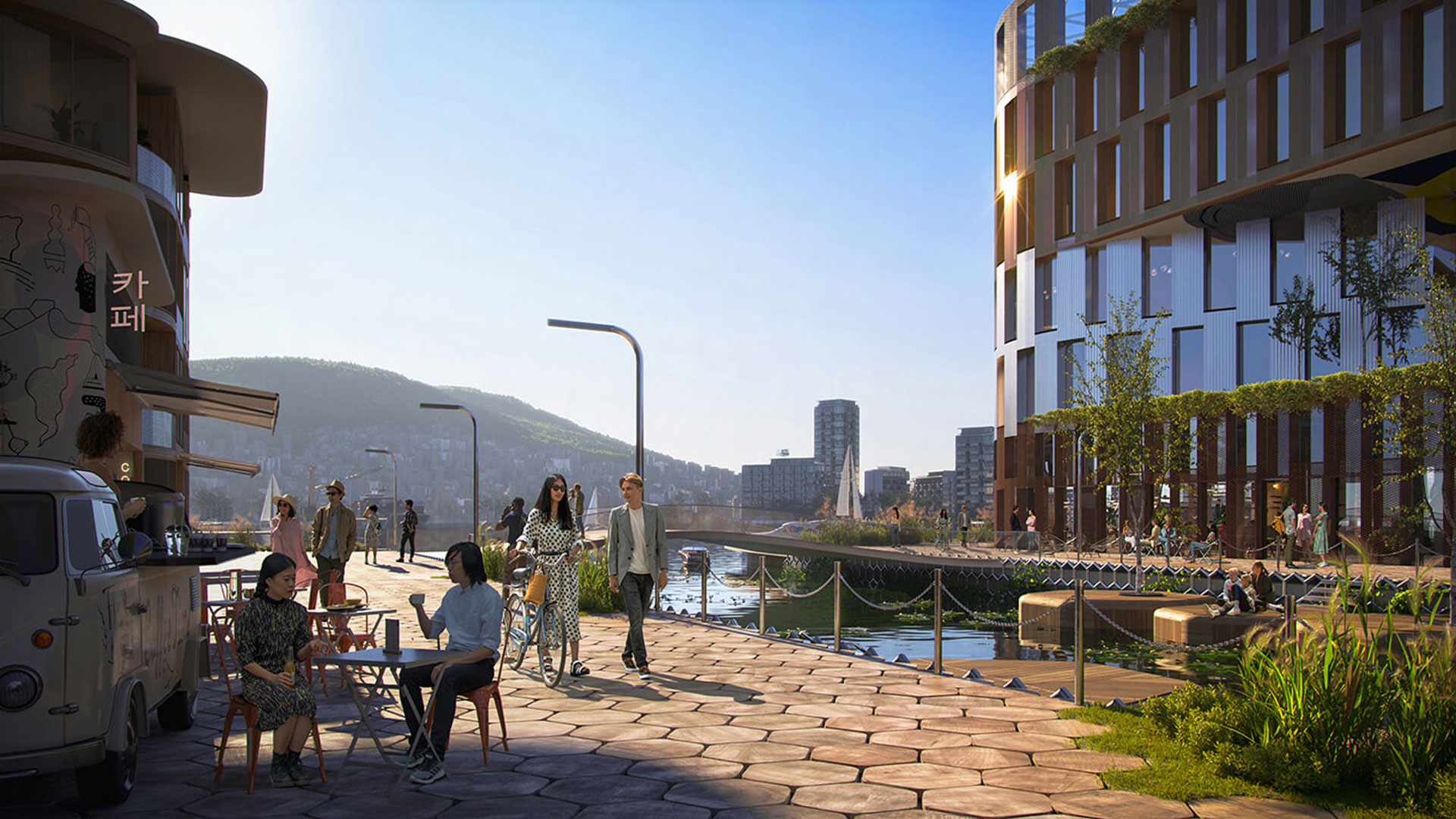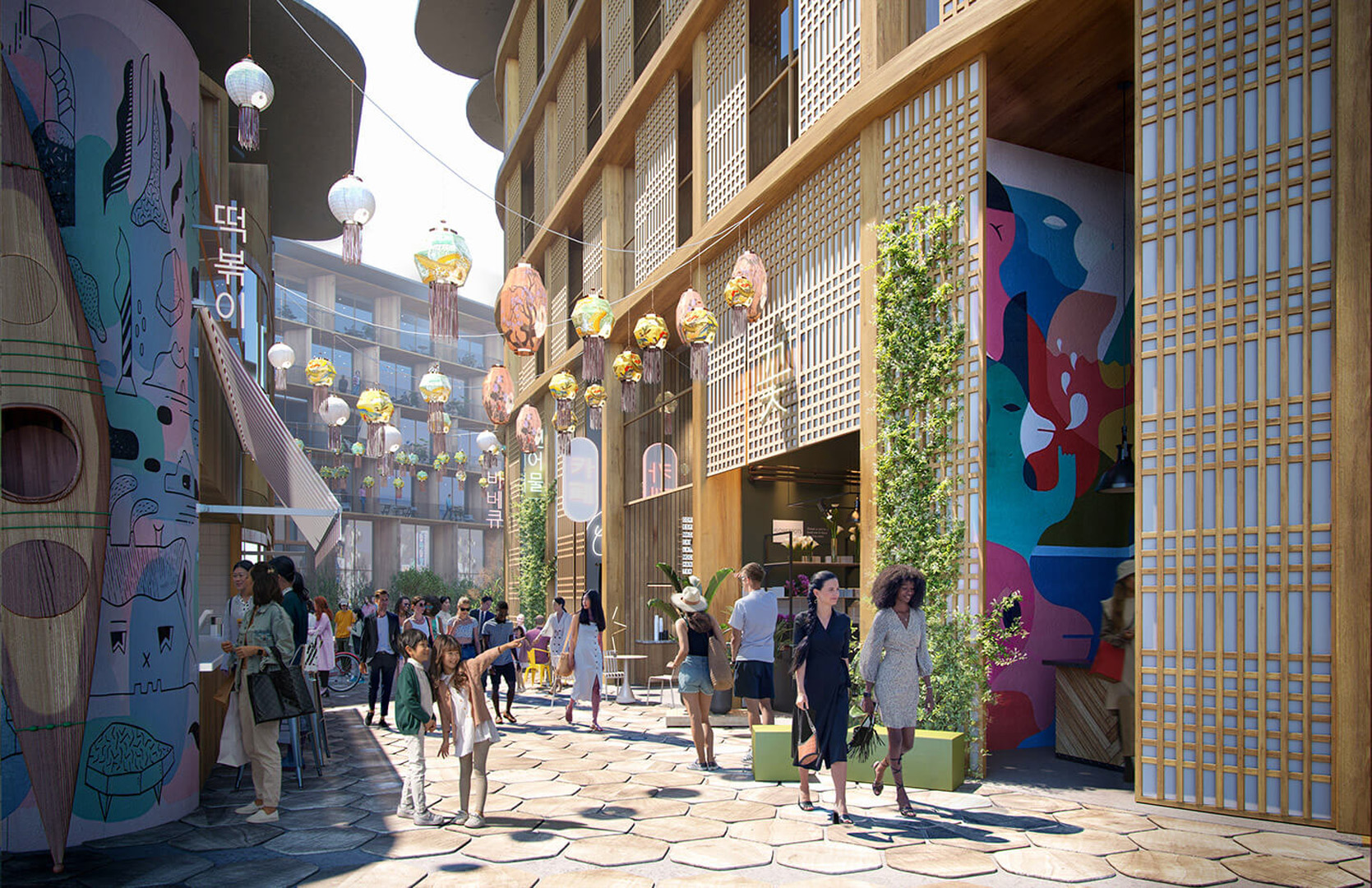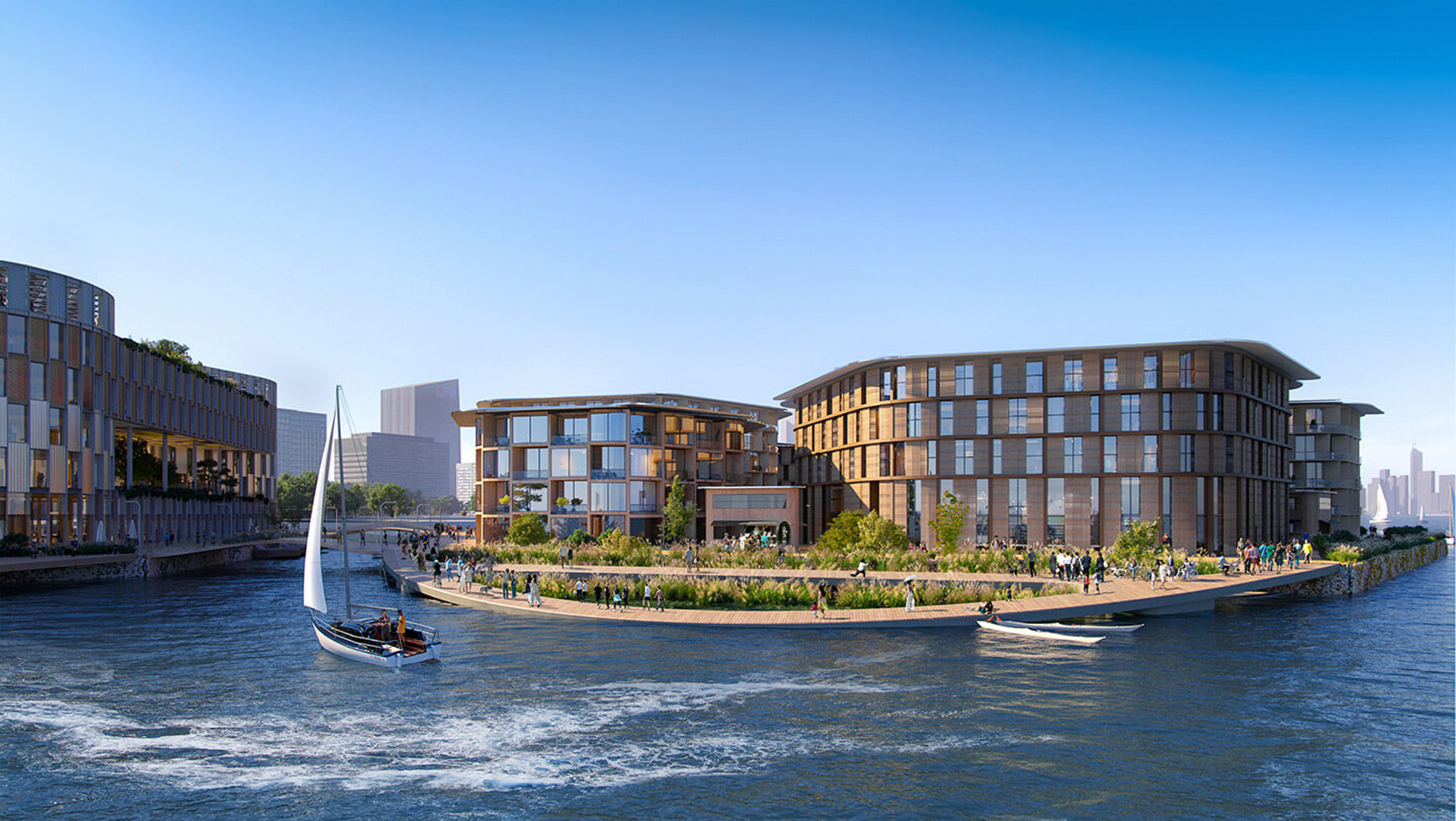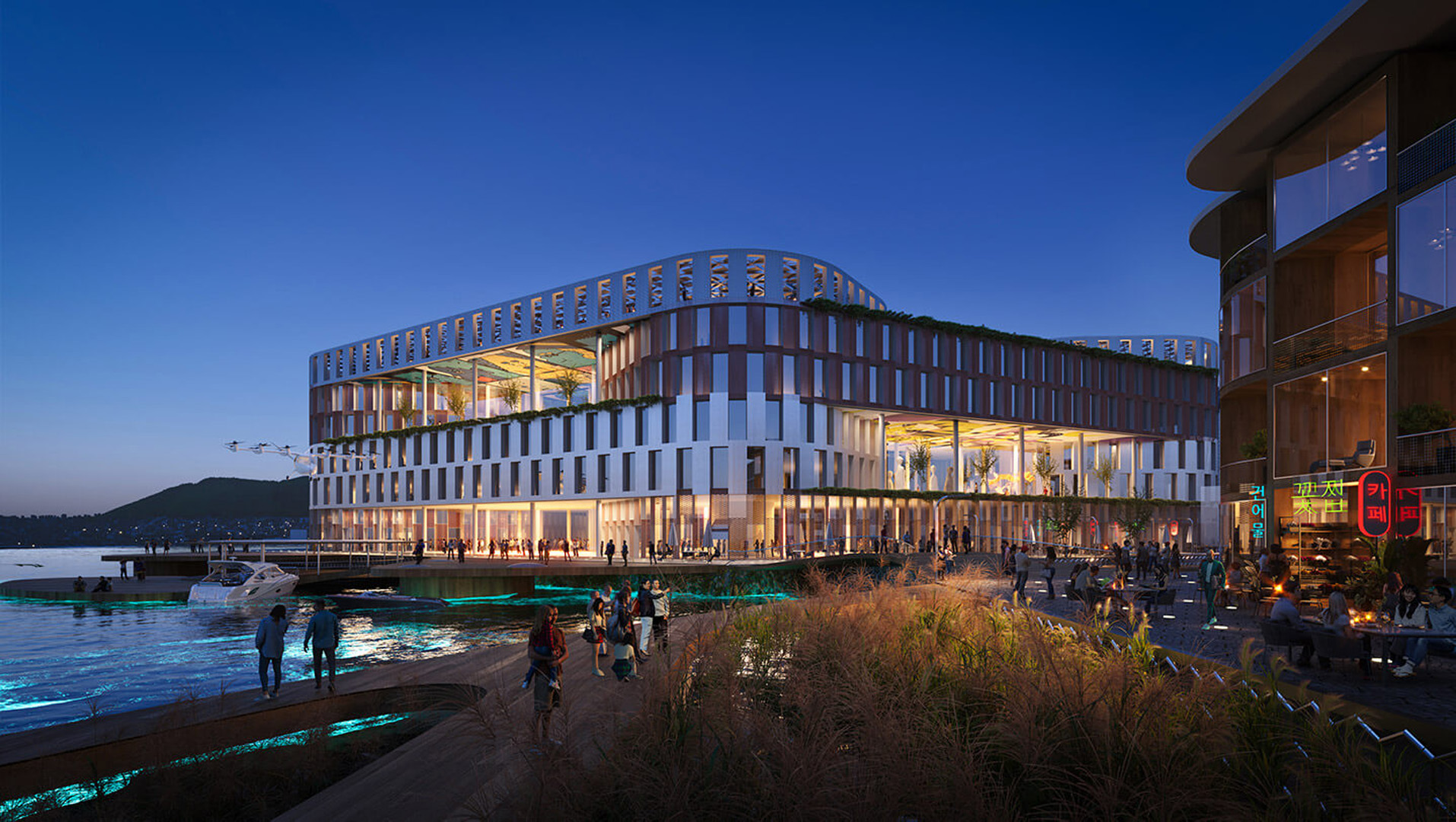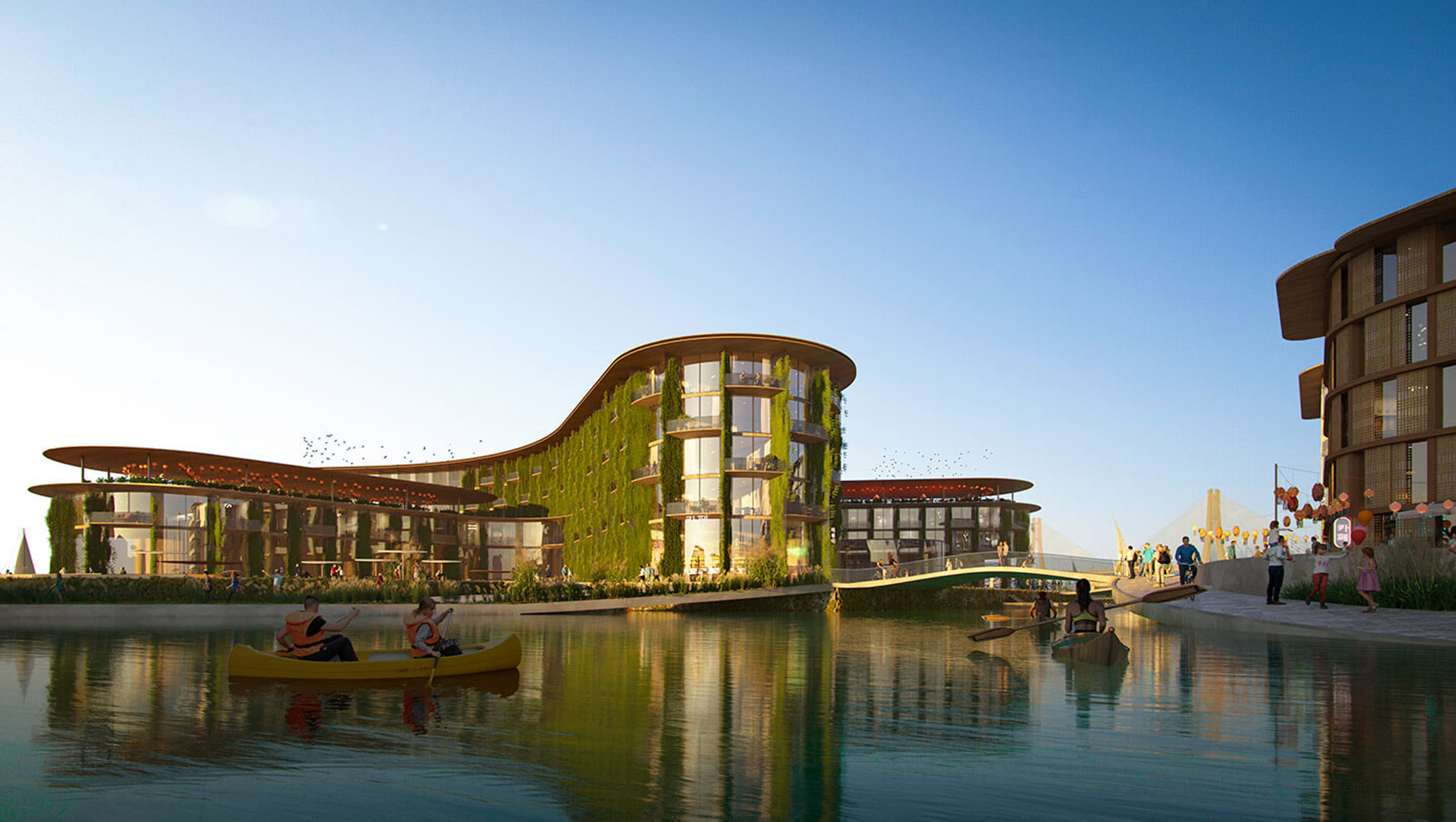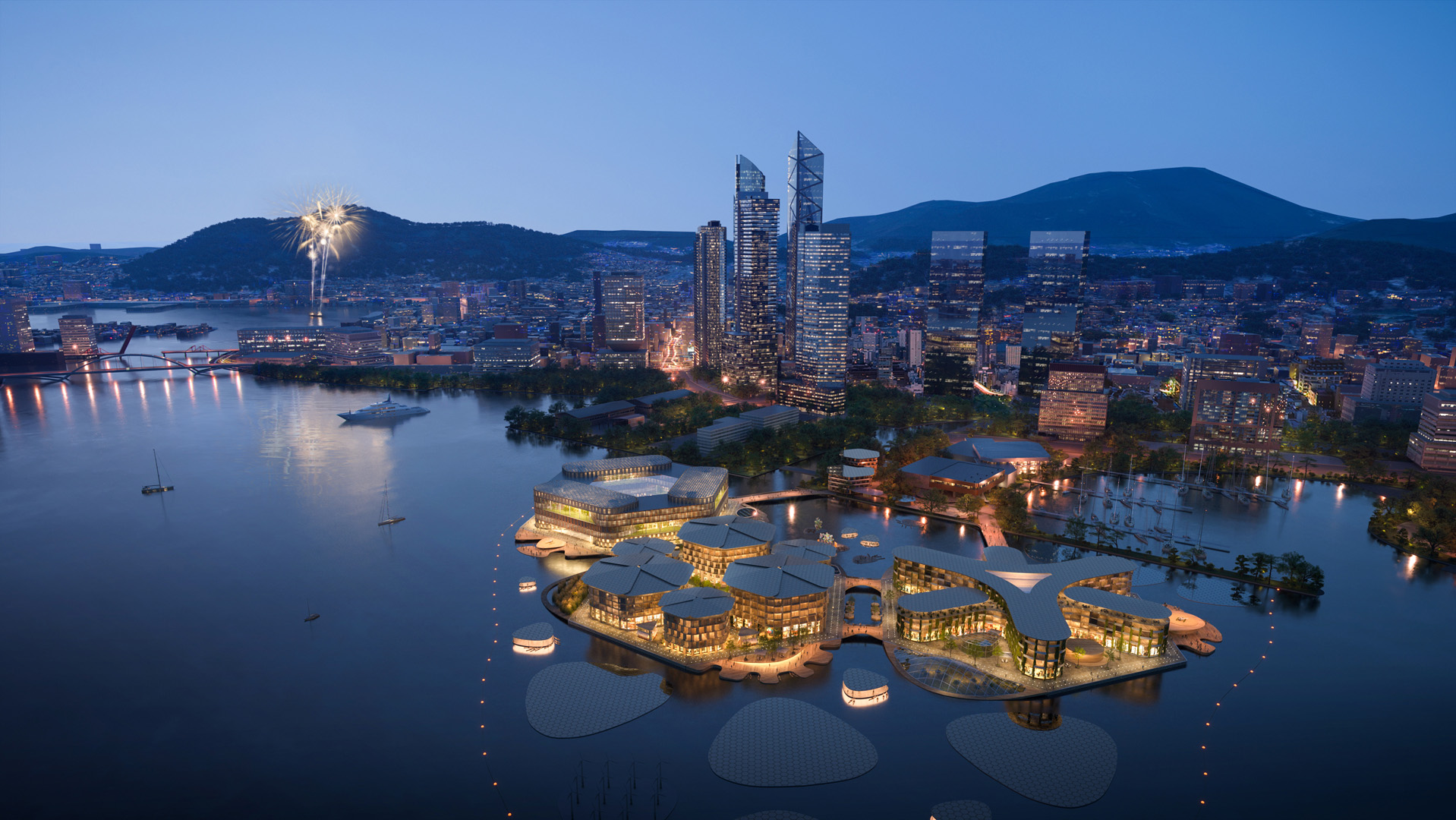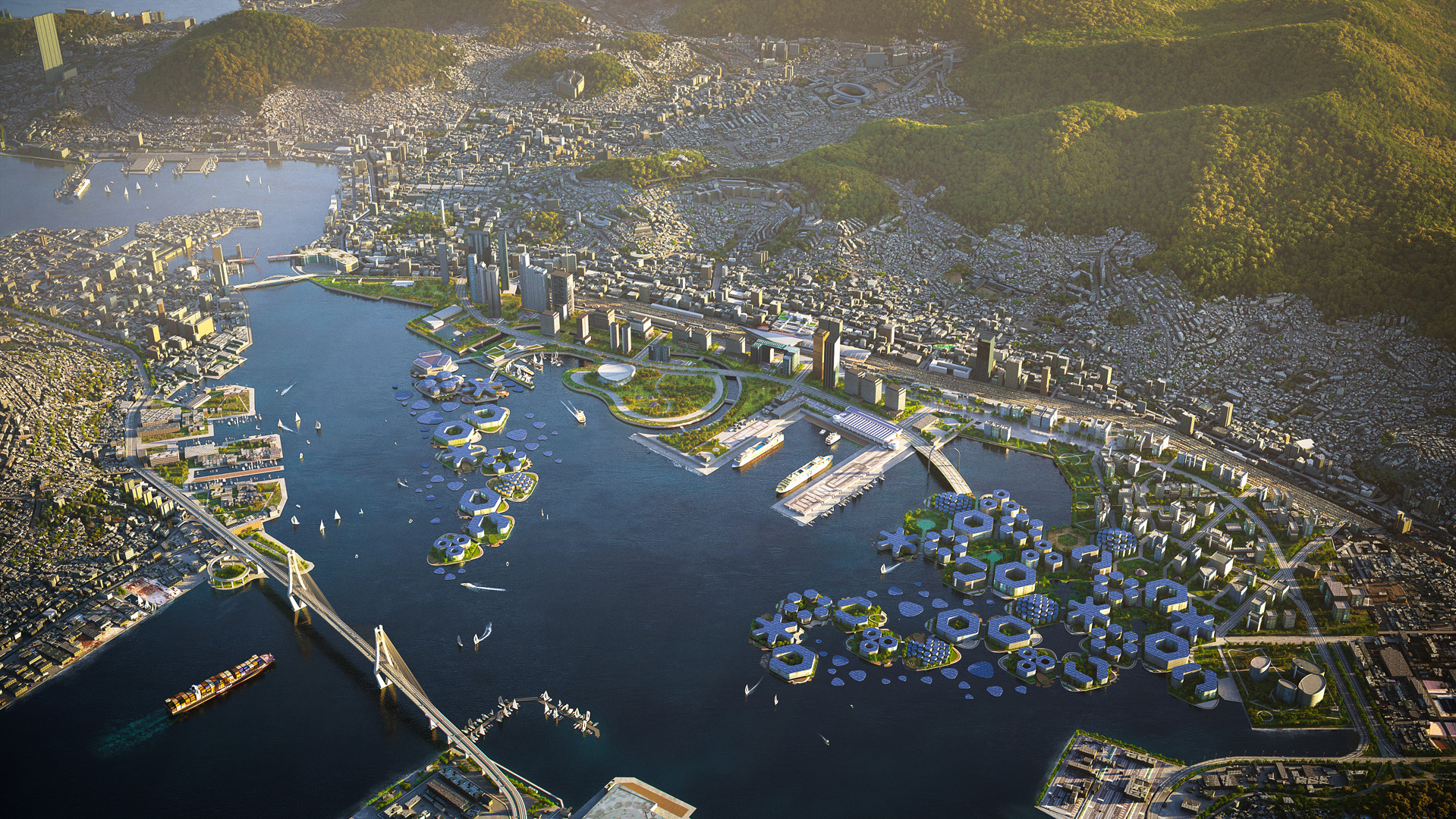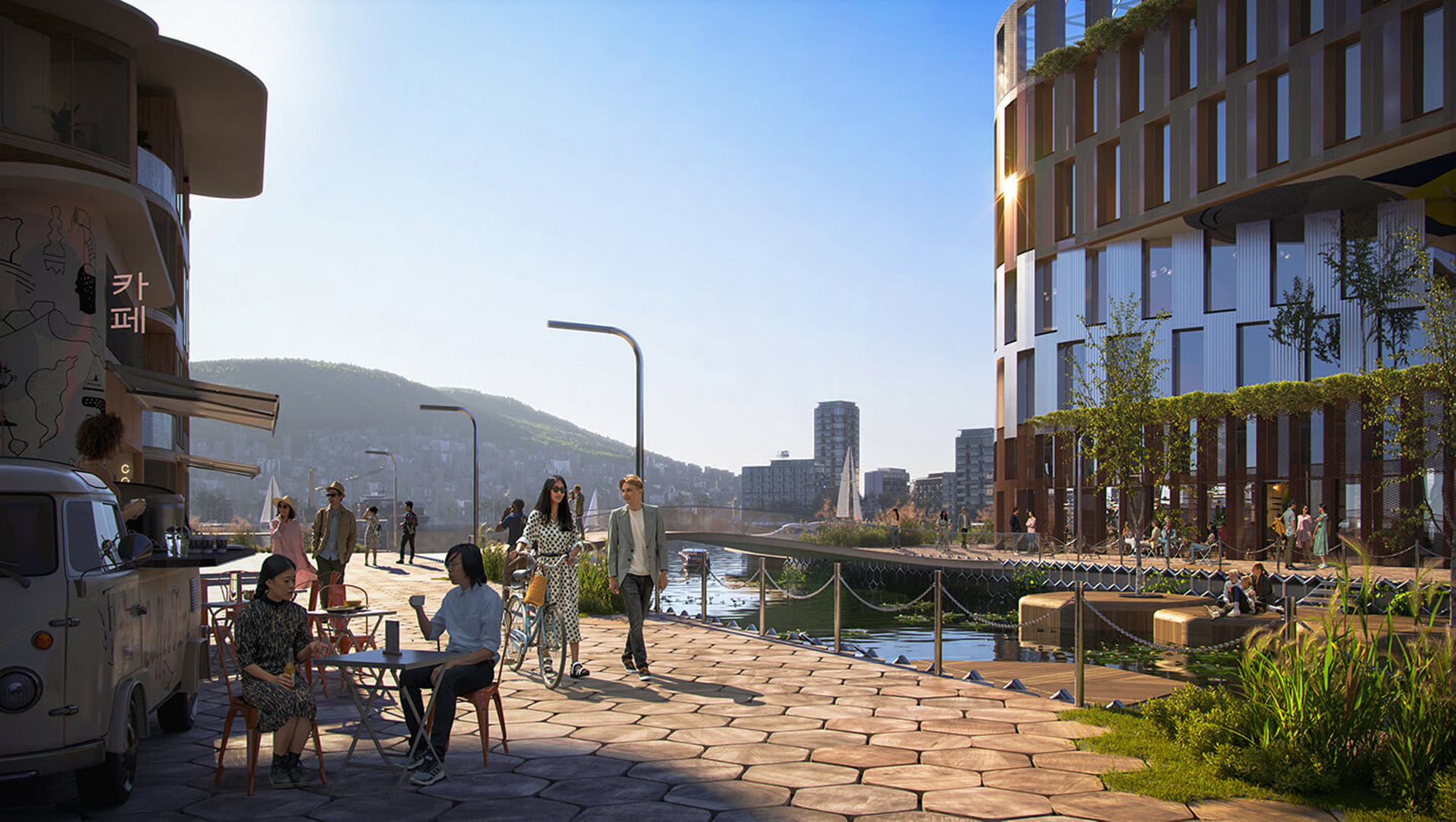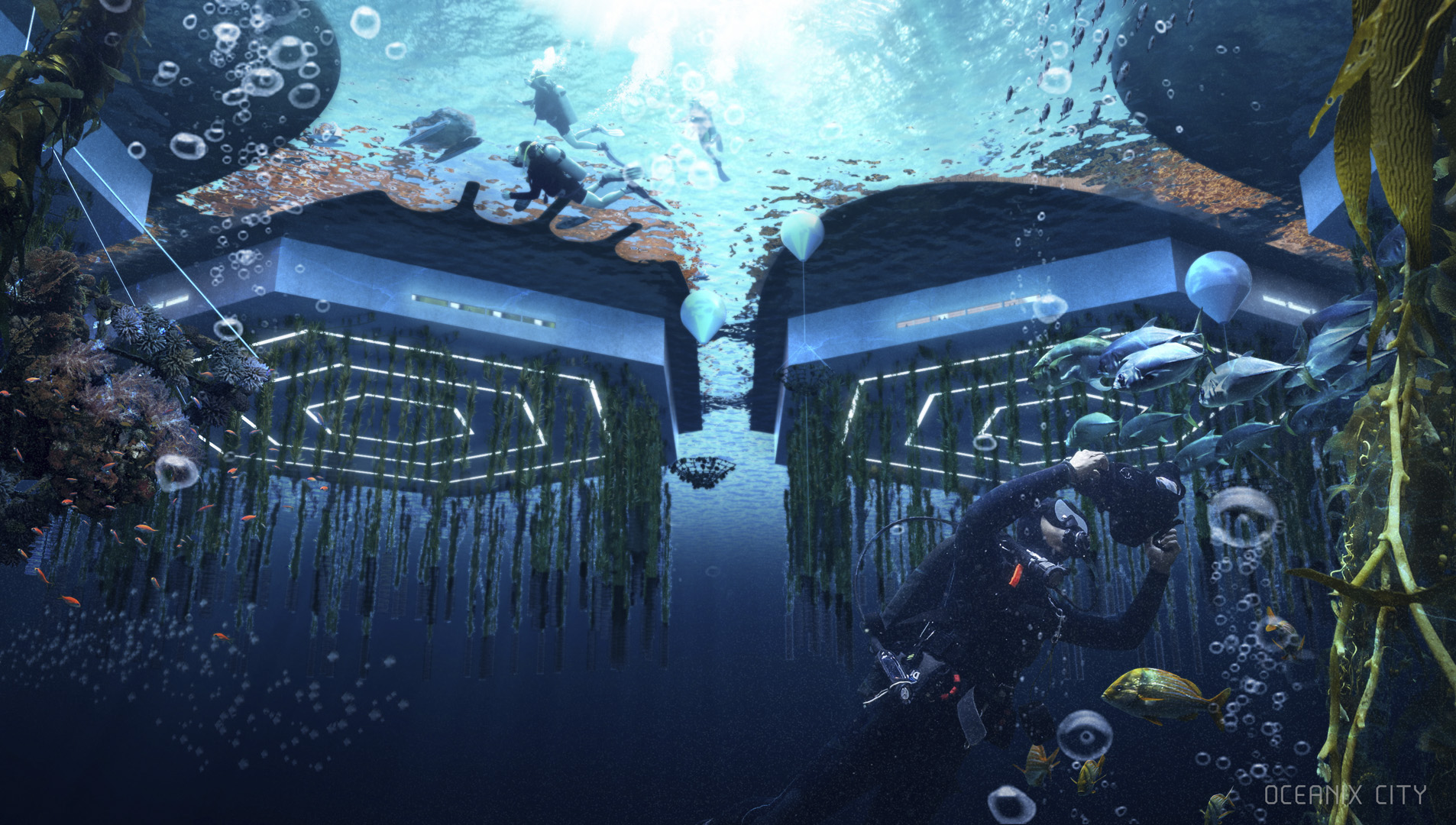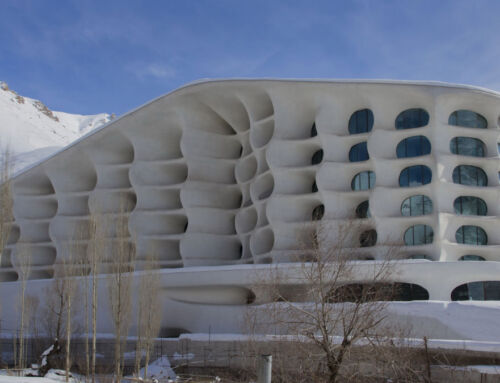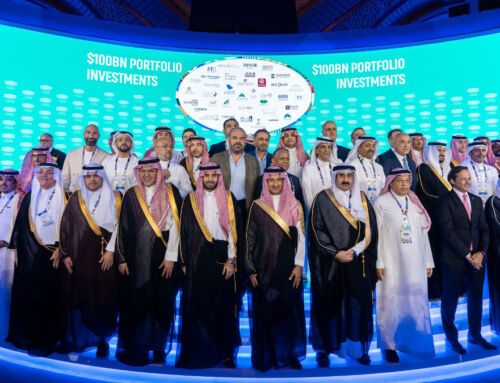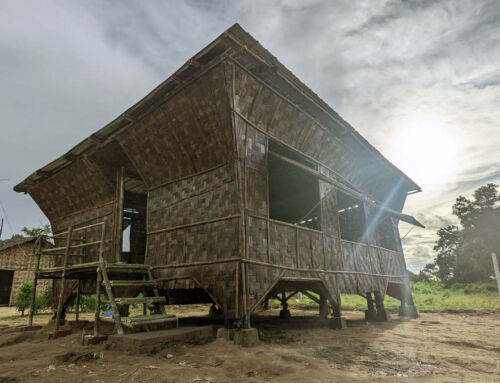Last April, a pioneering project in the field of design and construction was presented at the UN headquarters in New York. It is an initiative of the company OCEANIX, founded in 2018 in the American city for this purpose, designed to be located in the port city of Busan, South Korea’s second most populated city after Seoul. OCEANIX Busan, as it has been named, represents “the world’s first prototype of a resilient and sustainable floating community“.
The new city, conceived in modular form, will consist of three types of floating platforms, depending on their use: a residential one of between 1 and 5 floors, with restaurants, shops, greenhouses and common terraces on the lower floor, and housing with views of the port on the upper floors; another for offices, co-working and/or marine research; and another for public places, meeting and interaction between residents, as well as “supportive spaces for sustainable, circular living“, or the supply of food, water and energy. These three initial floating platforms, connected to each other and to land by bridges, will be anchored to the seabed so that they remain static in their location and, at the same time, have enough flexibility to rise and fall with the sea level.
Regarding the materials, OCEANIX relies on the so-called Biorock for the construction of the platforms’ flotation structures. Biorock is the commercial name of a material obtained by a process of mineral accumulation in seawater. By passing a low-voltage direct electric current through a steel or iron skeleton submerged in seawater, a reaction is triggered whereby minerals such as calcium or magnesium adhere to the skeleton. The material accumulated on the skeleton is about three times stronger than concrete, grows at a rate of about 20 mm per year, prevents corrosion and is self-repairing as long as electrical current is present. The buildings on the floating structures, on the other hand, will be made of lightweight materials such as wood.
OCEANIX is working with UN-Habitat, Bjarke Ingels Group, SAMOO Architects and Engineers, Arup, MIT Center for Ocean Engineering, Korea Maritime and Ocean University, Studio Other Spaces, Center for Zero Waste Design and the Global Coral Reef Alliance to develop the floating city prototype project.
We invite you to dream what OCEANIX Busan can become, through this video:


